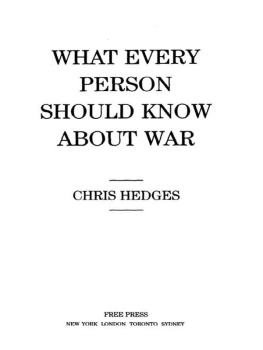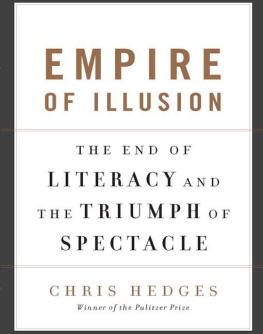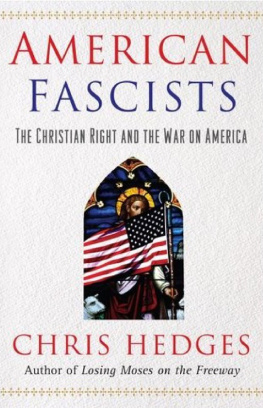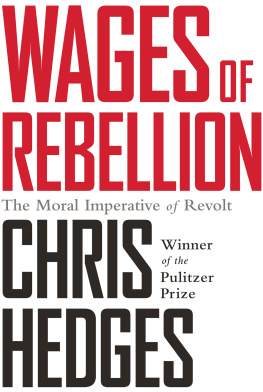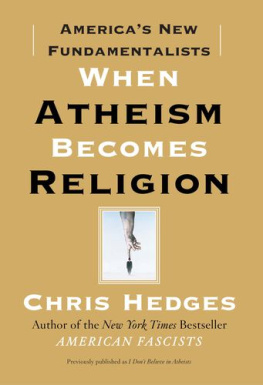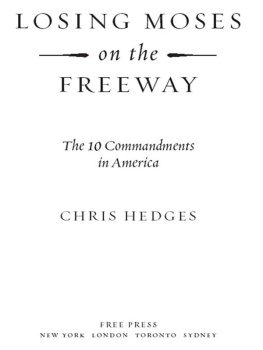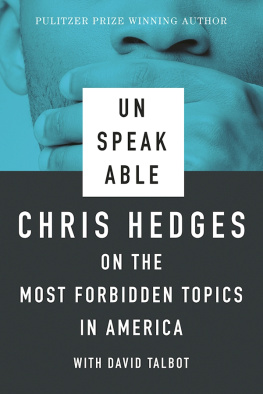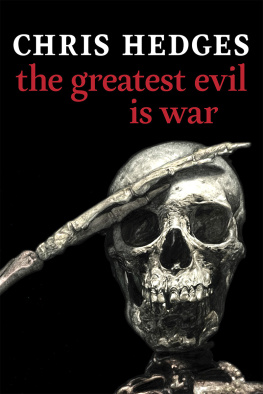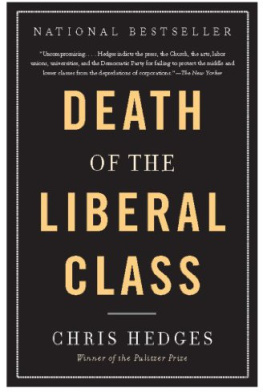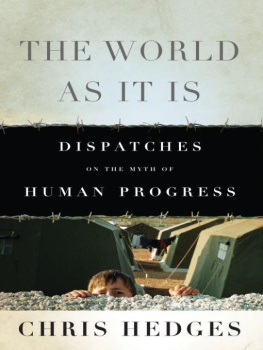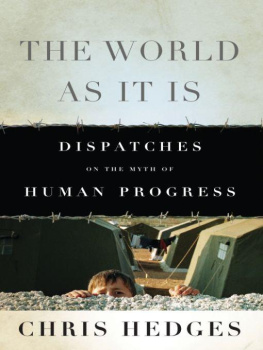Library of Congress Cataloging-in-Publication Data is available.
There is ful many a man that crieth Werre! Werre! that woot ful litel what werre amounteth.
Geoffrey Chaucer, medieval English poet who was a soldier and prisoner of war in France, in The Tale of Melibee,
The Canterbury Tales, c. 1392
INTRODUCTION
I have spent most of my adult life reporting war. By the time it was over, after nearly two decades, I had worked as a correspondent in about a dozen conflicts from Central America to Africa to the Middle East and the Balkans. I spent five years covering the insurgencies in El Salvador, Guatemala, and Nicaragua. I was there for the first Palestinian uprising, or intifada, in the West Bank and Gaza, and returned to write about the second. I reported on the civil wars in the Sudan and Yemen, the uprisings in Algeria and the Punjab, and the collapse of the communist regimes in East Germany, Czechoslovakia, and Romania. I went on to the Gulf War, the Kurdish rebellion in southeastern Turkey and northern Iraq, the war in Bosnia, and finally to the fighting in Kosovo.
I have been in ambushes on desolate dirt roads in Central America, in firefights in the marshes in southern Iraq between Shiite rebels and Iraqi soldiers, imprisoned in the Sudan, captured and held prisoner for a week by the Iraqi Republican Guard in Basra during the Shiite rebellion following the 1991 Gulf War, strafed by MiG-21s in Bosnia, fired upon by Serb snipers, and pounded with over 1,000 heavy shells a day in Sarajevo. I struggle with the demons all who have been to war must bear. There are days when these burdens seem more than I can handle.
There are few books that describe in raw detail the effects of war, what it does to bodies, to minds and souls. The trauma of war is often too hard for us to digest. We find it easier to believe the myths about war, the exciting call to duty, honor, courage, and glory, those abstract terms that are rendered hollow in combat. This is not to say these qualities do not existthey dobut they rarely have much place on the battlefield. Modern industrial warfare is largely impersonal. The effects of these powerful weapons and explosives on human bodies are usually not disclosed to the public. The physical and psychological wounds are lifelong crucibles carried by veterans and civilian survivors. These wounds are often unseen. Those who suffer from wars touch are often left to struggle with the awful scars of war alone or with their families. War, when we understand it, forces us to confront our own capacity for violence, indeed for atrocity. And it is little wonder that most of us prefer to turn away.
Few of us can hold on to our real selves long enough to discover the momentous truths about ourselves and this whirling earth to which we cling, wrote J. Glenn Gray, a combat veteran of World War II, in The Warriors: Reflections on Men in Battle . This is especially true of men in war. The great god Mars tries to blind us when we enter his realm, and when we leave he gives us a generous cup of the waters of Lethe to drink.
We ennoble war. We turn it into entertainment. And in all this we forget what war is about, what it does to those who wage it and those who suffer from it. We ask those in the military and their families to make sacrifices that color the rest of their lives. Those who hate war the most, I have often found, are veterans who know it.
War, I believe, is an inevitable part of the human condition. I doubt it will ever be eradicated. But it should never be waged lightly or without good cause. The cost is high. Most of those killed, wounded, and left homeless in modern warfare are innocents, families, including children. There are millions of people on this planet who, because of war, have been thrust into a life of want and misery. And their dislocation, along with their loss of dignity and basic human rights, has created legions of the disenfranchised.
The truth about war is hard to confront, especially if we have come to believe the romantic image of war. But the truth will arm us to wage war. It will make us conscious of the sacrifices we demand from those we send to fight. Our young men and women do not deserve to be deceived about the difficulties they must undertake. In a democracy, the voting public must grasp the exacting toll of war. And when we know what it is we face, and the possible consequences, we will be better prepared to cope with the stress, pain, and loss. Those who come back from war will be better able to handle their own trauma. They will understand that they are not alone. Perhaps they will also come to realize that we all need help. We all need each other. War is a cross no one should have to bear alone.
Give sorrow words, William Shakespeare wrote, The grief that does not speak whispers the oerfraught heart and bids it break.
The book is a manual on war. There is no rhetoric. There are very few adjectives. It is a book based on research. The core of the research was directed by Cabe Franklin, who worked with Sam Frank and Byrd Schas. Laurie Kelliher, along with some of my other graduate students at Columbia Universitys School of Journalism, gave many hours to the effort. The book is also the product of a great deal of reflection by several veterans, especially John Wheeler who graduated from West Point, served in Vietnam, and went on to chair the drive to build the Vietnam Veterans Memorial in Washington, D.C. He significantly shaped and molded the book. Paul Woodruff, a philosopher who wrote Reverence: Renewing a Forgotten Virtue and was a military adviser in Vietnam, helped edit the manuscript. The novelist Christian Bauman, who joined the Army after high school and served in Somalia and Haiti, along with Jarrad Shiver, who was a sergeant in the Marine Corps, made sure the concerns and dilemmas of the enlisted men and women were included. Christian wrote The Ice Beneath You , one of the finest books on life in the American army. And we are indebted to three members of the Hughes family, all West Point graduates, who helped us look at the issues that concern women in the military and made sure we thoughtfully asked and answered questions about wounds and warfare. Carolyn Hughes Copenhaver, a former Army captain who served in military intelligence from 1992 to 1997, Captain John R. Hughes, an Army surgeon, and Dr. William F. Hughes, a retired colonel who served three tours in Vietnam, all generously lent their expertise to the work.
We drew up basic questions about war and searched medical, psychological, and military studies for information. We were meticulous about footnotes, fact checking, and sourcing. If anyone wants more on any subject, the footnotes and bibliography show where to find it. We kept the book direct and accessible. And we operated on the assumption that the simplest and most obvious questions in life, and certainly war, often never get asked. The ancient Greek philosopher Heracleitus noted that men are estranged from what is most familiar and they must seek out what is in itself evident.
The idea for the book came from the work of Harold Roland Shapiro, a New York lawyer who stumbled on medical studies from World War I during a law case. The medical descriptions, he wrote, rendered all that I had read and heard previously as being either fiction, isolated reminiscence, vague generalization or deliberate propaganda.

